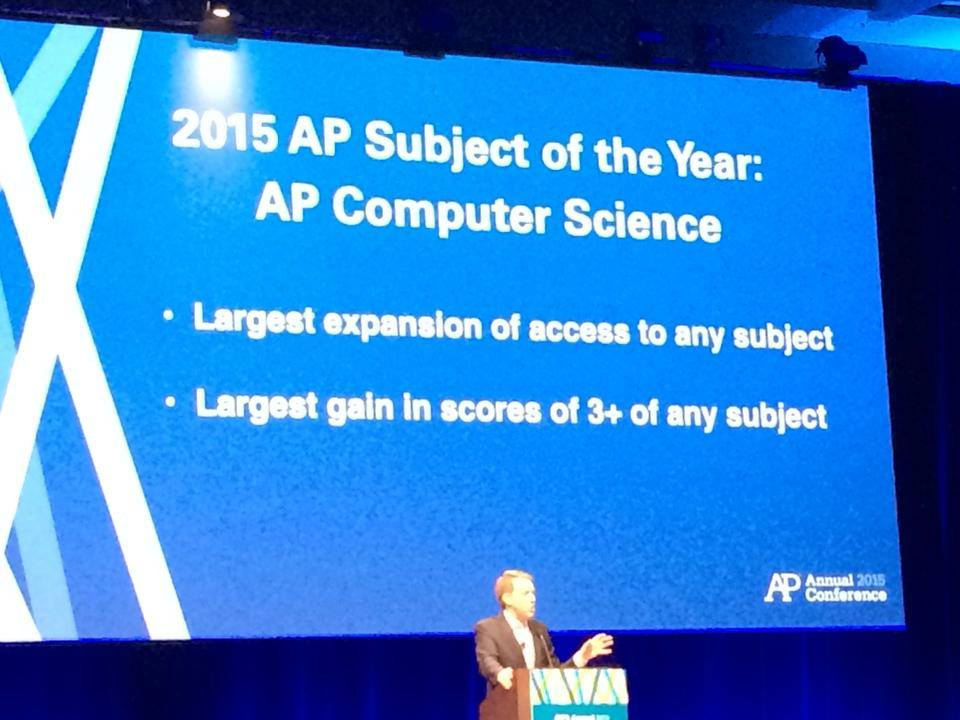Teaching to the test - APCS

This image has been making its rounds.
Largest expansion is pretty clear but are the largest gain in 3+ scores mean a higher percentage of 3+ scores or merely the result of more test takers?
I'm curious, but that's not what I wanted to talk about.
Looking at our AP results from this year we had:

For the past two years we've been allowed to run 7 sections of AP Computer Science with about 30 kids per class. Prior to that we were limited to five sections. There hasn't been a change in either percent passing and more importantly the percentage of 4 and 5 scores for years. I suspect that if we were allowed to open more sections to meet demands the overall percentage of 4/5 scores would remain the same.
While we always are mostly 4s and 5s, the interesting point this year is that we had a much higher percentage of 5s to 4s.
Two possibilities I can think of. One is that the depending on how the test is scored and the fact that there were so many additional test takers it changed the curve. Since I've never been involved in the scoring, I can't comment on this.
The other change is that the College Board dropped the case study - a large sample project that students are supposed to study throughout the class. Between 20% and 30% of the AP Exam was based on the case study.
I'm guessing that some teachers liked the case study but it never worked for me. What's more, all of us at Stuy pretty much agree on the subject. It's like those CS texts that have one long continuous project throughout – if the project, its design and implementation make sense to you and how you teach, you can just work through the text. If not, the text becomes next to useless.
We all hated the case study and so we all paid it minimal lip service. Teaching the case study would amount to teaching to the test. We'd rather teach Computer Science 1
I'm pretty certain that some of our kids were slowed down on the AP exam due to our approach to the case study but they still did fine and besides, for our kids, the exam generally doesn't mean a thing. In our experience if a student goes to the CS department at their college and shows their stuff, they'll be placed appropriately. It didn't matter if they got a 5, a 4, a 3, or even if they didnt take the exam at all.
Perhaps that's the reason for our uptick in 5s vs 4s. No case study and all of a sudden our kids weren't at a disadvantage.
I can't say for certain but it seems plausible.
If we taught to the test, I'm guessing more students would have scored 5s all along.
The concern?
If the College Board continues to be the driving force, either solo or in partnership with organizations like code.org, the importance of the AP Exam will remain. It's already considered by many the gold standard - if your kids take and do well on AP exams, your school must be a top school.
Educators know better. AP Exams are not the be all and end all and in fact, many of us would like to be rid of them altogether so that we could just teach rigorous courses and not to the test.
The end game is predictable. Just as we will see more and more teaching to the test in common core and regents classes so we will see in computer science.
I predict that there will be a few pockets of excellence here and there but in the end, canned AP prep will win the day. We'll have CS in the schools but not so much good CS.
Footnotes:
If the case study worked for you, then it's not teaching to the test.

Comments
Comments powered by Disqus